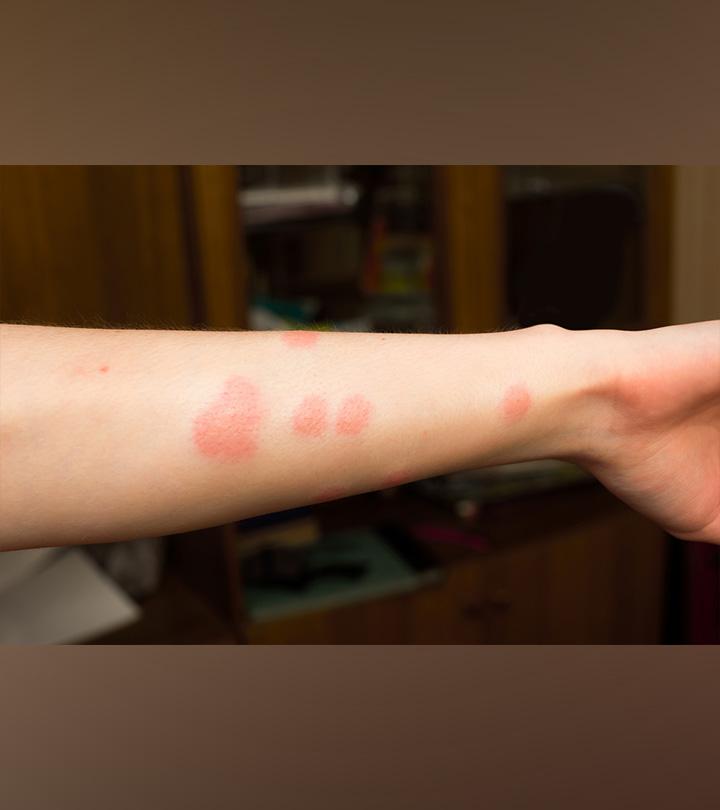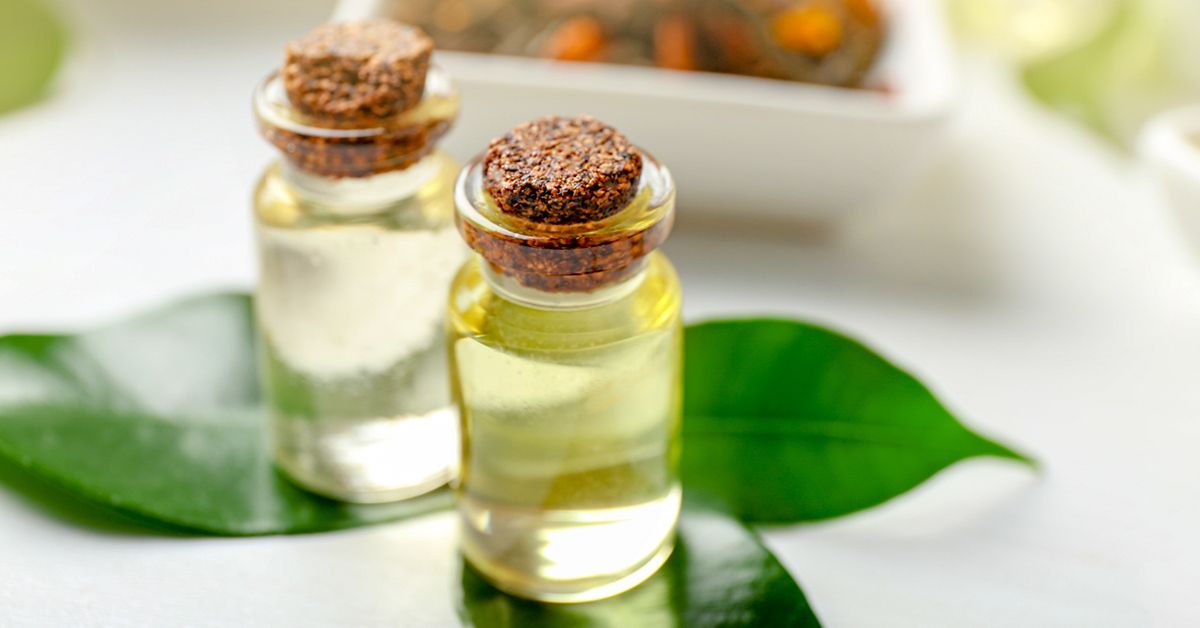- EARTH TO AILMENT
- Posts
- EARTH TO AILMENT #22
EARTH TO AILMENT #22

Give your child's skin the love it deserves with these top 10 tips for healthy skin! Children’s skin is delicate and requires special care to fend off damage from harsh weather and pollution. The article underscores the importance of maintaining hygiene, a balanced diet, and adequate sleep while avoiding chemical products.
Explore natural remedies with everyday ingredients like turmeric, coconut oil, and beetroot to nourish and protect their skin. Hydration is key—make sure they drink plenty of water! From homemade face packs to the benefits of fruits and vegetables, these simple tips not only enhance your child's skin health but also keep it smooth and glowing.
Always remember to conduct a patch test for any new treatments, and consult a dermatologist for persistent skin issues.
:max_bytes(150000):strip_icc()/can-pokeweed-provide-health-benefits-4587368-primary-recirc-de7989982a824350a7e447060eac6cd9.jpg)
Pokeweed is a toxic plant with a history of use in alternative medicine, yet it can be dangerous if not handled properly. Found primarily along the Gulf Coast, this herb has been associated with treating various ailments, but scientific backing for these claims is largely absent.
Contact with pokeweed can result in a painful rash similar to poison ivy, and ingestion can lead to severe toxicity, including symptoms like muscle spasms and even death.
While it can be prepared safely for culinary use through extensive cooking, all parts of the plant, especially the berries, remain highly poisonous.
If you suspect exposure or poisoning, seek immediate medical attention. Because the FDA doesn’t regulate herbal supplements rigorously, it's crucial to consult healthcare providers before trying any pokeweed products to avoid harmful interactions.

If you're on a quest for glowing skin, natural home remedies for skin whitening might be your go-to solution! This article dives into the world of safe and effective alternatives to chemical treatments, showcasing an array of simple ingredients—think lemon juice, honey, and aloe vera—that can help achieve a brighter complexion. Packed with benefits, these remedies are not only cost-effective but also gentle on all skin types.
Plus, they offer additional nourishing properties, ensuring your skin stays healthy while fading dark spots. With practical tips for usage and a gentle approach to skincare, this guide emphasizes the importance of consistency and patience.
Whether you’re targeting hyperpigmentation or simply seeking a radiant glow, embracing natural remedies might just be the refreshing change your skincare routine needs.

Discover the beauty of DIY skincare with these 10 natural face cleanser recipes that are easy to whip up at home! Forget expensive products—these simple ingredients from your kitchen can transform your skincare routine. Whether you’re battling acne or seeking hydration, options like coconut oil, honey, and apple cider vinegar are here to boost your glow.
For a gentle exfoliation, try yogurt and lemon, while soothing olive oil and grape cleansers nourish your skin. There's also a unique dry yeast mask to brighten and rejuvenate.
With expert tips from dermatologists, each recipe promises nourishment without harsh chemicals.

If you're hoping to conceive, boosting your progesterone levels is key! This essential hormone prepares your uterus for implantation and supports early pregnancy, making it crucial for those struggling with infertility—19% of women aged 15 to 49 face this challenge. Thankfully, there are natural ways to elevate your progesterone.
Start by avoiding excessive exercise, which can produce stress hormones that lower progesterone. A balanced diet rich in zinc, omega-3s, and vitamins B6, C, and E can help, along with maintaining a healthy weight and managing stress.
Say goodbye to processed foods that contain xenoestrogens and hello to nourishing options like fatty fish, nuts, and leafy greens. With these simple lifestyle tweaks, you can create a favorable environment for fertility.

Flea bites on children can be a source of discomfort, often presenting as small, itchy red bumps. These pesky bites usually arise from fleas found on pets or surfaces around the home.
While irritating and prone to infections from scratching, timely care can alleviate symptoms. Simple home remedies, like applying calamine lotion or cold compresses, can help soothe the skin, while keeping nails trimmed reduces the chance of infection.
Prevention is key, so regular cleaning, pest control, and monitoring your pets can significantly reduce flea exposure. If symptoms persist or worsen, consulting a pediatrician is essential for further treatment.
:max_bytes(150000):strip_icc()/GettyImages-471099185-5b3174a7fa6bcc0036742955.jpg)
Elderberry, a dark purple berry from the European elder tree, is a popular natural remedy known for its immune-boosting properties. Packed with antioxidants, it’s often used to alleviate symptoms of respiratory infections like the common cold and flu.
While some studies suggest that elderberry may reduce the severity and duration of these illnesses, results vary, and it should not be regarded as a preventive measure. Caution is needed, as unripe berries and other parts of the plant can be toxic, releasing harmful cyanide compounds.
Elderberry is generally safe when cooked and consumed in moderation, but pregnant women, nursing mothers, and young children should avoid it. Always consult a healthcare professional before adding elderberry supplements to your routine, especially since there’s no standard dosage, and product quality can vary.

In the dynamic realm of healthcare, personalized medicine is reshaping treatment paradigms, and stem cell therapy is leading the charge. Especially promising is autologous stem cell therapy, which harnesses a patient's own cells to enhance natural healing, avoiding many risks associated with donor-derived treatments.
This innovative approach not only reduces the likelihood of immune rejection and disease transmission, but also steers clear of ethical concerns tied to embryonic stem cells.
As research underscores the effectiveness of early intervention, the potential for these therapies to revolutionize health management grows.
Moreover, emerging practices like stem cell banking allow individuals to preserve their most potent cells for future use, paving the way for proactive treatments. With continued advancements, autologous stem cell therapy is set to become a cornerstone of personalized medicine, offering tailored solutions that prioritize individual health needs—transforming how we conceptualize healing and wellness for tomorrow.

Dandruff during pregnancy is a common but often pesky issue that affects many expectant mothers. Hormonal changes, increased oil production, and sensitive scalps can trigger flaky skin and irritation.
While it may seem alarming, dandruff is typically harmless and manageable! Treatment options abound, ranging from medicated shampoos to soothing natural remedies like coconut oil, aloe vera, and rosemary. Consulting with a healthcare provider can help tailor the right approach for you.
Additionally, preventing dandruff can be as simple as managing stress, eating well, and keeping your hair adequately conditioned. So, fear not, mamas-to-be! With the right care and strategies, you can keep that itchy scalp at bay during your pregnancy journey.

Curious about using tea tree oil for skin tags? While this essential oil has a celebrated history in treating wounds and fighting infections, there's limited evidence supporting its effectiveness for skin tags. Despite its popularity as a home remedy, experts, including the American Academy of Dermatology, advise against DIY removal methods.
Skin tags are harmless growths that can be effectively removed by dermatologists through professional techniques like cryosurgery or electrodesiccation. Though tea tree oil boasts numerous benefits like combating acne and even some antifungal properties, treating skin tags isn’t one of them.